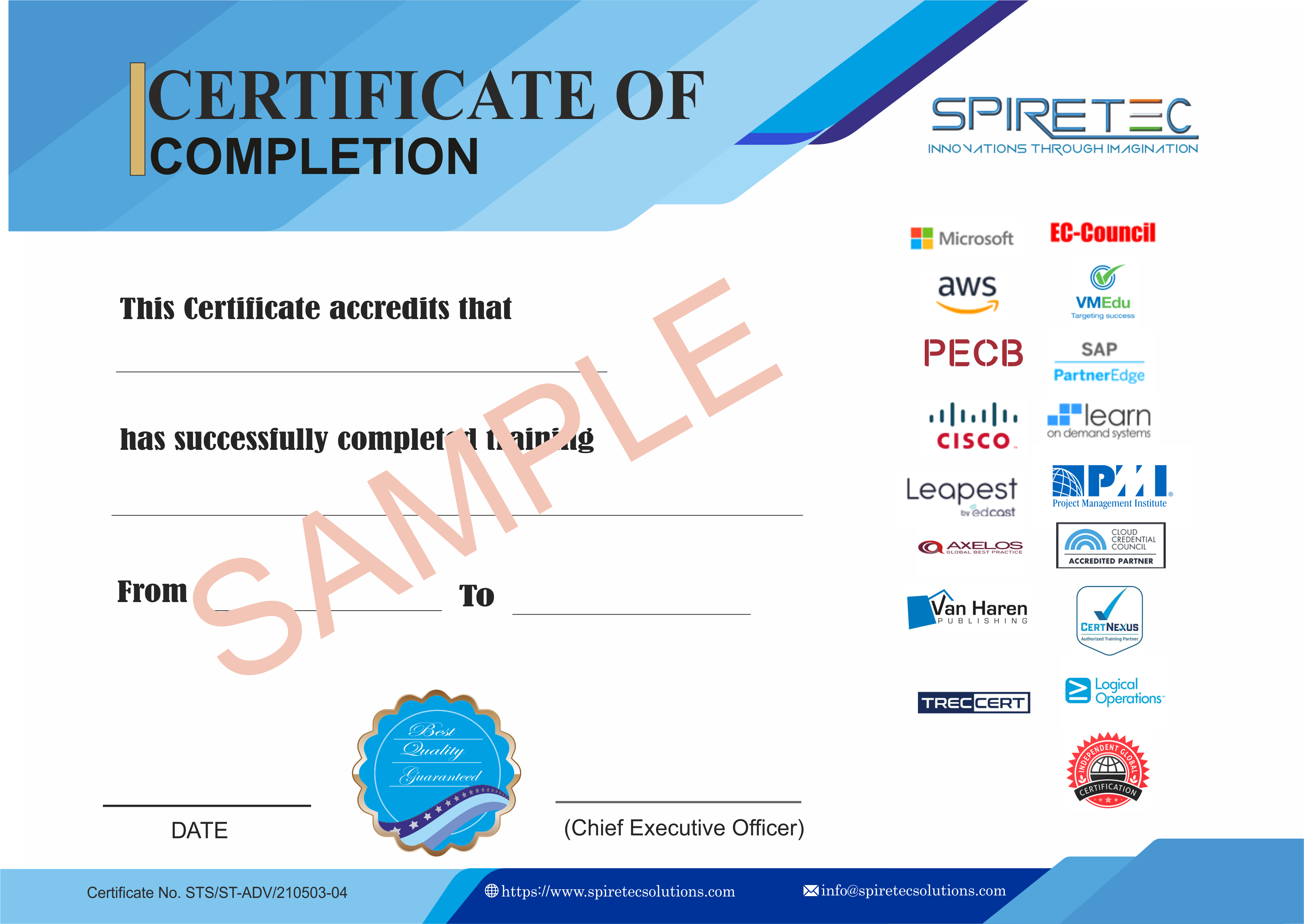55215 : SharePoint Online Power User course is designed to provide in-depth training for individuals looking to become proficient SharePoint Online Power Users. This course covers a broad range of topics that enable learners to effectively manage and collaborate within a SharePoint Online environment. Participants will start with SharePoint Online user training by exploring the basics of SharePoint Online, understanding its role as a central repository for information, and learning about its features such as web content management, team collaboration, search, social computing, and workflows. They will delve into business intelligence, security trimming, and understand the various roles such as Visitors, Members, Owners, Site Collection Administrator, and Office 365 Admin. Further, the course includes hands-on labs where learners will practice creating sites with different templates, managing web pages, defining business information and retention policies, adding and configuring apps, building processes with workflows, customizing security, communicating with social tools, and working with search functionalities. By the end of the course, participants will have gained comprehensive SharePoint Online Power User skills, empowering them to manage SharePoint Online resources efficiently, improving productivity, and enhancing collaboration within their organizations.
Audience Profile:
This course is intended for both novice and experienced SharePoint users who wish to make full use of SharePoint Online.
At Course Completion:
After completing this course, students will be able to:
-
Understand the benefits of using SharePoint in real-world scenarios.
-
Create new SharePoint sites to store business information.
-
Create pages to share news and content.
-
Customize the structure of a site to meet specific business requirements.
-
Create and manage views, columns, and apps.
-
Manage the security of a site.
-
Use the Power Platform to customize forms and automate processes.
-
Use search to find business information, from people to documents.
Prerequisites:
Course Outline:
Module 1: An Introduction to SharePoint Online
Let’s get started with SharePoint Online by exploring its fantastic features. We will demonstrate popular uses of SharePoint Online for managing and sharing content, creating engaging web pages, automating business processes, and making informed business decisions with business intelligence.
We will also discuss the typical users of our sites. Site owners are entrusted with functionalities typically reserved for developers in other business systems. As a site owner, you will be amazed at the potential SharePoint Online has to offer.
Lessons:
-
Introducing Office 365 and SharePoint
-
The cloud revolution
-
What is Office 365?
-
What is SharePoint?
-
Introducing Microsoft 365 Groups
-
Ownership and access
-
Getting started with Office 365
-
Login to Office 365
-
The app launcher
-
Office 365 settings
-
Delve
-
OneDrive
Lab 1: An Introduction to SharePoint Online
After completing this module, students will be able to:
-
Describe popular reasons for using SharePoint Online
-
Understand user roles in SharePoint Online
-
Log in to Office 365
-
Navigate to SharePoint Online
Module 2: Creating Sites
Whether managing existing sites or just starting, we will discuss site hierarchy and planning your SharePoint sites, allowing you to understand existing sites and make informed decisions when building new ones.
As a site owner, you will have access to various site templates. You will use these templates to gain a better understanding of each site's function and appropriate use. Once your site is ready, we will change its look and feel and apply your business brand. We will also build our navigation bar, a simple but powerful way to help users navigate between websites.
Lessons:
-
Planning your sites
-
Your Office 365 tenant
-
Web addresses
-
Site collections
-
Create a new site
-
Navigating your team site
-
User interface: modern vs. classic
-
Site contents: modern vs. classic
-
Create new subsites
-
Site templates
-
Apply a theme
-
Building your navigation
-
Delete subsites
-
SharePoint Hub Sites
Lab 1: Creating Sites
-
Create two subsites
-
Delete a subsite
-
Restore a subsite
-
Update the navigation
After completing this module, students will be able to:
Module 3: Creating and Managing Web Pages
SharePoint boasts a rich selection of options for building web pages. You will learn how to update your SharePoint site's home page with text, links, images, buttons, videos, and other web parts. We will also show you best practices for creating multiple pages and linking them together.
In most site templates, creating and managing web pages is a simple, fast, and rewarding way to present essential information and applications.
SharePoint can also serve as an intranet for internal news. Due to the high visibility of these websites, more control is typically placed on releasing new web pages or updates to existing ones. Therefore, SharePoint offers both classic publishing sites and modern communication sites.
Lessons:
-
The types of pages found in SharePoint
-
Modern SharePoint pages
-
Create news and site pages
-
Web parts
-
Save, publish, share, and delete pages
-
Communication sites
-
Classic SharePoint pages
-
How to use classic team site pages
Lab 1: Create and Manage Pages
-
Populate Microsoft Stream
-
Create a news article
-
Create a page about your team
-
Edit your home page and link to other pages
-
Delete and restore a page
-
Check your SharePoint app for news
-
Add a communication site
-
Add a survey to a page using Microsoft Forms
After completing this module, students will be able to:
-
Know when to create pages
-
Author rich news articles
-
Add content to a page, including images and videos
-
Use publishing page content such as renditions and reusable content
Module 4: Working with Apps
Apps are essential for storing information such as events, contacts, and files in a site. SharePoint provides a selection of apps for different scenarios, all customizable for specific business requirements. Apps can be categorized into lists, libraries, and marketplace apps. SharePoint lists serve as the structure for calendars, discussion boards, contacts, and tasks. This module explains the concept of lists and reviews popular options.
A document library is a location on a site where you can create, collect, update, and share files, including Word, Excel, PowerPoint, and PDF documents. We will show you the benefits of using a library and teach you how to work with various types of files effectively.
An introduction to marketplace apps will show how to extend site functionality beyond what Microsoft has provided in the SharePoint Online platform.
Lessons:
-
An introduction to apps
-
An introduction to libraries
-
Classic and modern libraries
-
An introduction to lists
-
Marketplace apps
-
Adding apps to a site
-
Create and manage columns
-
Public and personal views
Lab 1: Working with Apps
-
Creating a new library
-
Setting up columns and views
-
Uploading content
-
Setting up alerts and using versioning
-
Creating a list
-
Deleting and restoring an app
After completing this module, students will be able to:
-
Understand the app templates available in SharePoint Online
-
Create new apps to store business information
-
Customize apps with columns, views, and settings to meet specific business needs
Module 5: Building Processes with Power Automate and Power Apps
Building your business processes into SharePoint is simplified with code-free solutions for capturing information and automating tasks. From SharePoint, discover Power Automate, a workflow designer that allows you to integrate lists and libraries with other Office 365 apps and business services. Additionally, we will explore Power Apps, a form designer that provides a tailored experience for SharePoint lists and libraries, enabling users to document information from their web browser or mobile app. This module focuses on the integration capabilities between SharePoint, Power Automate, and Power Apps.
Lessons:
-
What are business processes?
-
Getting started with Power Automate in SharePoint
-
Design and publish a flow in Power Automate
-
Getting started with Power Apps in SharePoint
Lab 1: Building Processes with Power Automate and Power Apps
After completing this module, students will be able to:
Module 6: Customizing Security
Security is crucial for any site. In this module, you will discover best practices for adding and removing colleagues from your site and defining their level of access. As a site owner, you can customize permission levels, allowing you to create access levels aligned with user responsibilities.
Lessons:
-
Microsoft 365 group access
-
Updating Microsoft 365 group security
-
Managing access to SharePoint
-
New sites: public vs. private
Lab 1: Customizing Security
-
Share Content in a library
-
Create new permission levels
-
Add and remove users and check permissions
After completing this module, students will be able to:
-
Understand security objects in SharePoint Online
-
Invite and remove people from a SharePoint site
-
Share content in a library and manage permissions
Module 7: Working with Search
SharePoint allows you to store vast amounts of content across various locations. This module covers tools that help you efficiently locate the information you need. In Office 365, Delve offers a more personalized experience by identifying useful and trending content.
Lessons:
Lab 1: Working with Search
After completing this module, students will be able to:
Module 8: Enterprise Content Management
Departments often use file templates and manual processes to ensure information is collected and retained correctly. This module will help your team establish reusable file templates and automate document lifecycle management.
Lessons:
Lab 1: Enterprise Content Management
After completing this module, students will be able to:







 Live Online Training (Duration : 32 Hours)
Live Online Training (Duration : 32 Hours)
